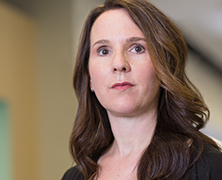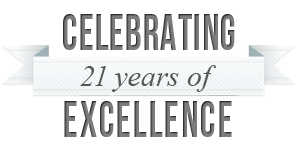This Fish & Richardson Principal Loves to Share What She’s Learned
Because the drug development lifecycle can stretch up to 20 years, Teresa Lavoie knows that helping her clients achieve patent exclusivity is just one step in what must be a long-term strategic plan to position them for success in the marketplace. She ensures that a company’s patent and clinical development strategies are aligned to maximize the synergies and competitive advantages that derive from both patent and FDA regulatory approval exclusivities, and she helps clients build portfolios that deter generic entry.
Having earned both a master’s and doctorate in chemistry from Princeton University, as well as a law degree, magna cum laude, from the University of Minnesota Law School, Teresa brings a unique blend of scientific and legal expertise to the business and regulatory challenges her clients face. She shares her knowledge by teaching a biotech patent law course as an adjunct professor at the University of Minnesota. For the past five years, she has coordinated Fish’s annual Life Sciences IP Summit, which brings approximately 75 industry leaders, clients, and potential clients together to discuss issues, trends, and best practices. And she runs the firm’s Patent Boot Camp program, an intensive two and a half day course that enables clients and Fish staff to learn the basics of patent prosecution.
“I knew my present career was what I wanted to do when I no longer felt dread on Sunday nights thinking about going to work on Monday morning,” said Teresa. “My clients do amazing science and I get to see it and their enthusiasm first-hand. What could be better than that?”
Teresa mentors young lawyers through the firm’s Diversity in Practice program, as a group leader for associates, and as a member of the firm’s Professional Development Committee.
In 2006, after her mother was diagnosed with early onset Alzheimer’s, Teresa launched “The Give to Remember Foundation,” a nonprofit organization that gives grants to caregivers of Alzheimer patients who can’t afford to hire help.
The most important quality a woman leader should have is…
…empathy. Put yourself in your client’s or your colleague’s shoes and think about how to approach problems from that perspective.
The career advice I’d give my former self:
Don’t be so hard on yourself.
The one thing I’d do differently in my career, knowing what I know now, is…
…focus my practice more quickly on the type of work and the clients that inspire me. When you are passionate about your work, it’s a lot easier to do.
When I really need to focus on a project, I…
…pull everything I might need together, make a quick outline, and ignore distractions like email. Coffee and loud music also help.
My biggest career leap (and what I learned from it) was…
…when I decided to leave academia and move into patent law as a patent agent for a start-up. Trust your instincts about what you are good at and what you love to do. Don’t follow the prescribed path if it doesn’t make you happy.
Being a woman in my profession has been…
…a total blast! I entered the legal profession in life sciences at a wonderful time for both the industry and for women. I have smart, motivated, funny, and inspirational colleagues and clients – both men and women.
I’ve learned that failure is…
…necessary to move forward in a purposeful, constructive manner. If you own up to your failures and think about what you might have done differently, it can be a positive. The difficulty sometimes is owning up to the failures.
I maintain a healthy personal life by…
…trying to establish and keep traditions with my family; getting enough sleep; and allowing myself to enjoy down time (like watching my favorite TV shows).
I knew my present career was what I wanted to do when…
…I no longer felt dread on Sunday nights thinking about going to work on Monday morning. My clients do amazing science and I get to see it and their enthusiasm first-hand. What could be better than that?







